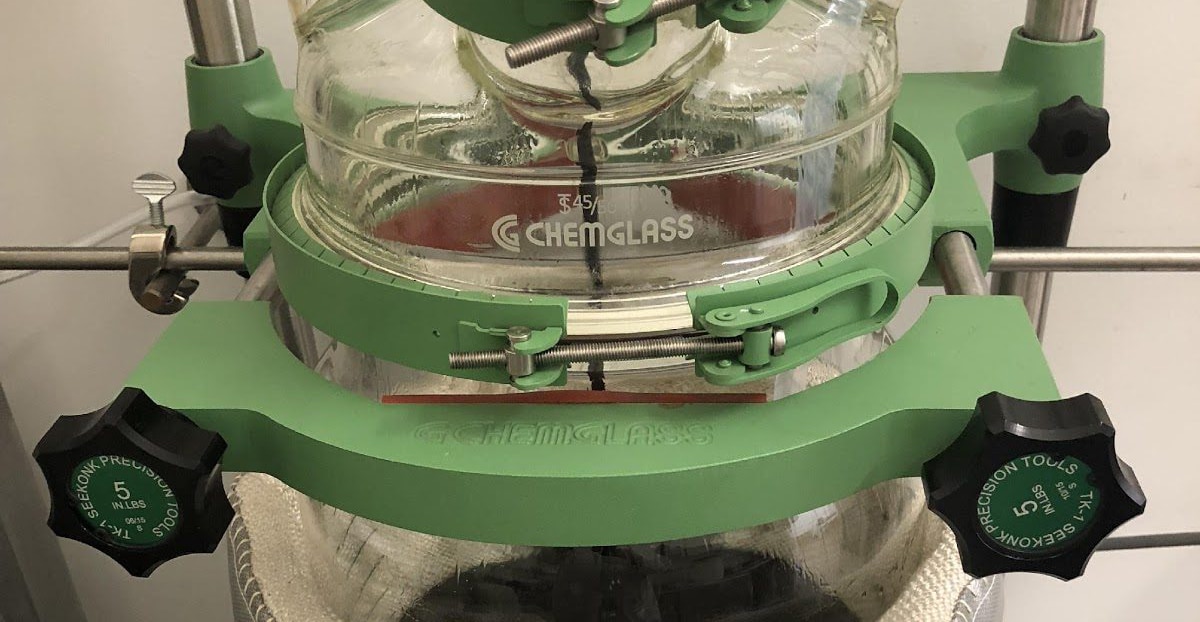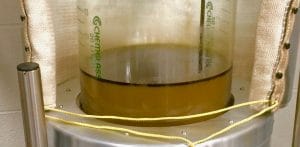Regardless of what type of cannabis extraction equipment you use, most of you are familiar with the various extraction methods: Solventless (Hashish, rosin press, cold water keif hash, etc), hydrocarbon (butane), supercritical carbon dioxide, and alcohols. Each has its own advantages and issues: let’s look at the pros and cons of each.
The oldest extract product is hashish, produced for centuries by literally beating the trichomes off of flowers. High quality material is produced, and it retains most of the terpene content. However, this (and other mechanical separation methods) are time consuming and difficult to scale, so hash remains a niche market.
The rosin press has become a viable method for midscale processing, and produces high quality extracts. The ground flower is placed between two adsorbent pads, then subjected to heat and pressure. The cannabinoids are melt into the pads, and after cooling, can be readily peeled off of the adsorbent. However, the downsides are low yields and the considerable manual manipulations required.
Butane (and propane, etc.) has gotten a lot of attention, both as an effective extraction method, and also as an explosive. A butane extraction can be done on the cheap, with only a PVC pipe and a can of lighter fluid. And this cheap extraction can very well kill you. There is no way to safely use butane in a system open to the atmosphere. The very qualities of the solvent that make it attractive (low viscosity, low boiling point, high volatility) give rise to the safety issues of a flash point of -60°C and an explosive concentration in air of 2-8%. In addition, hydrocarbons are excellent electrical insulators, which also makes then excellent generators of static charge. Flowing butane though a plastic or glass tube produces static electricity, and without precautions, this will spark and explosively ignite the butane. This is the probably the root cause of the many home explosions seen with butane. In order to make a butane process safe, a series of engineering controls are needed to:
- Inert the system to air
- Dissipate static electricity
- Eliminate all ignition sources
- Detect any leaks
- Ventilate the working area
- Provide emergency fire suppression.
These requirements substantially increase the price of your cannabis extraction equipment. Even if properly installed, the unit requires expert attention to mitigate the explosion risk. Yes, butane can be scaled, and it does provide nice products, but the inherent dangers of the hydrocarbon method severely limits it safe use.
Supercritical CO2 is another popular method. scCO2 is a superfluid at 73 atmospheres of pressure and above 31°C. Here the danger and cost lie with the high pressures and the asphyxiation risk of carbon dioxide. All components must be constructed to withstand the high pressure, and the equipment must be in a well-ventilated space, in case of leaks. Since cannabis extraction is obviously done on natural plant material, batch to batch variations can cause clogging of the high-pressure lines. This can lead to rapid over pressurization and catastrophic equipment failure. The high pressures also preclude economical scale-up: high pressure vessels are expensive chunks of stainless steel, which rapidly escalate in price with scale. Finally, the extraction product must be “winterized” to remove waxes (scCO2 extracts everything). This winterization is done with ethanol, which begs the question: why use CO2 at all, if you need ethanol anyway?
The Escet process just uses ethanol, water, and a small amount of vegetable oil (if desired). It is run at normal pressures, and is intrinsically safe. Fire hazards are minimal, and there is no chance of over pressurization. The materials of construction are glass and Teflon: no heavy stainless pressure vessels or cumbersome engineering controls. The method is quite cheap, requires little maintenance, and can be set up in a day.
More on the Escet process in future posts. If you have any questions or need assistantance with your legal cannabis business, please don’t hesitate to call us today at (732) 595-8026



